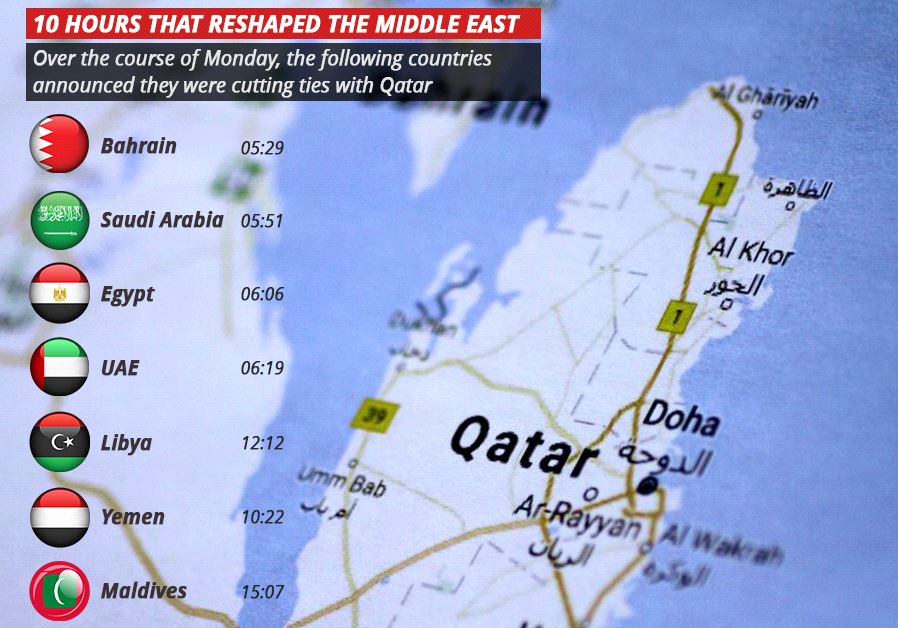Trump, Qatar and Saudi Arabia
Everyone wants peace, but terms of this peace remain vague. At least now, the pretense of espousing peace and supporting terrorism will be exposed.
 Countries announced cutting ties with Qatar(photo credit: REUTERS,INGIMAGE,JPOST STAFF)
Countries announced cutting ties with Qatar(photo credit: REUTERS,INGIMAGE,JPOST STAFF)